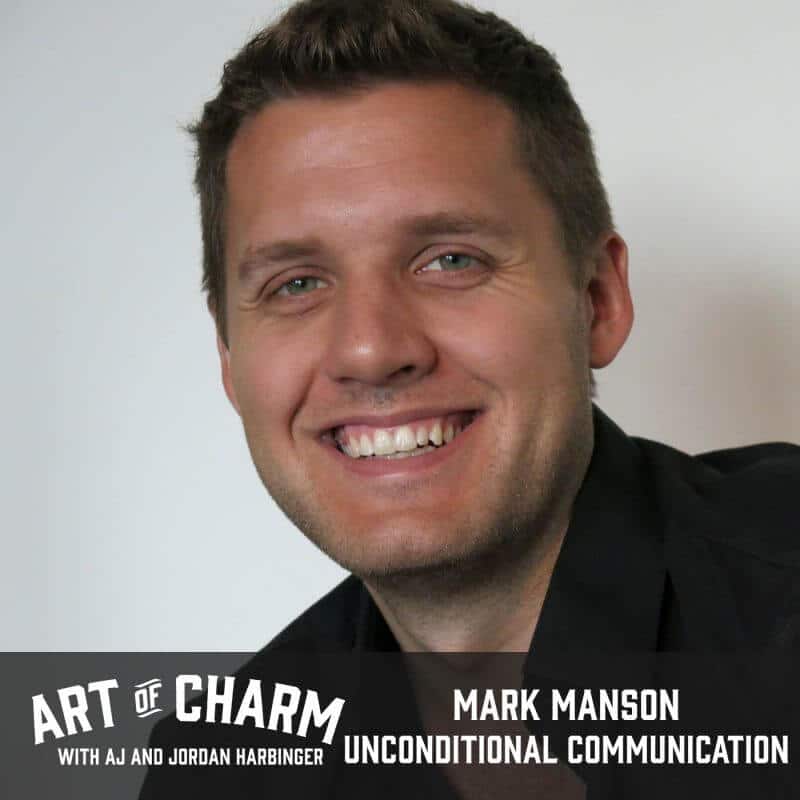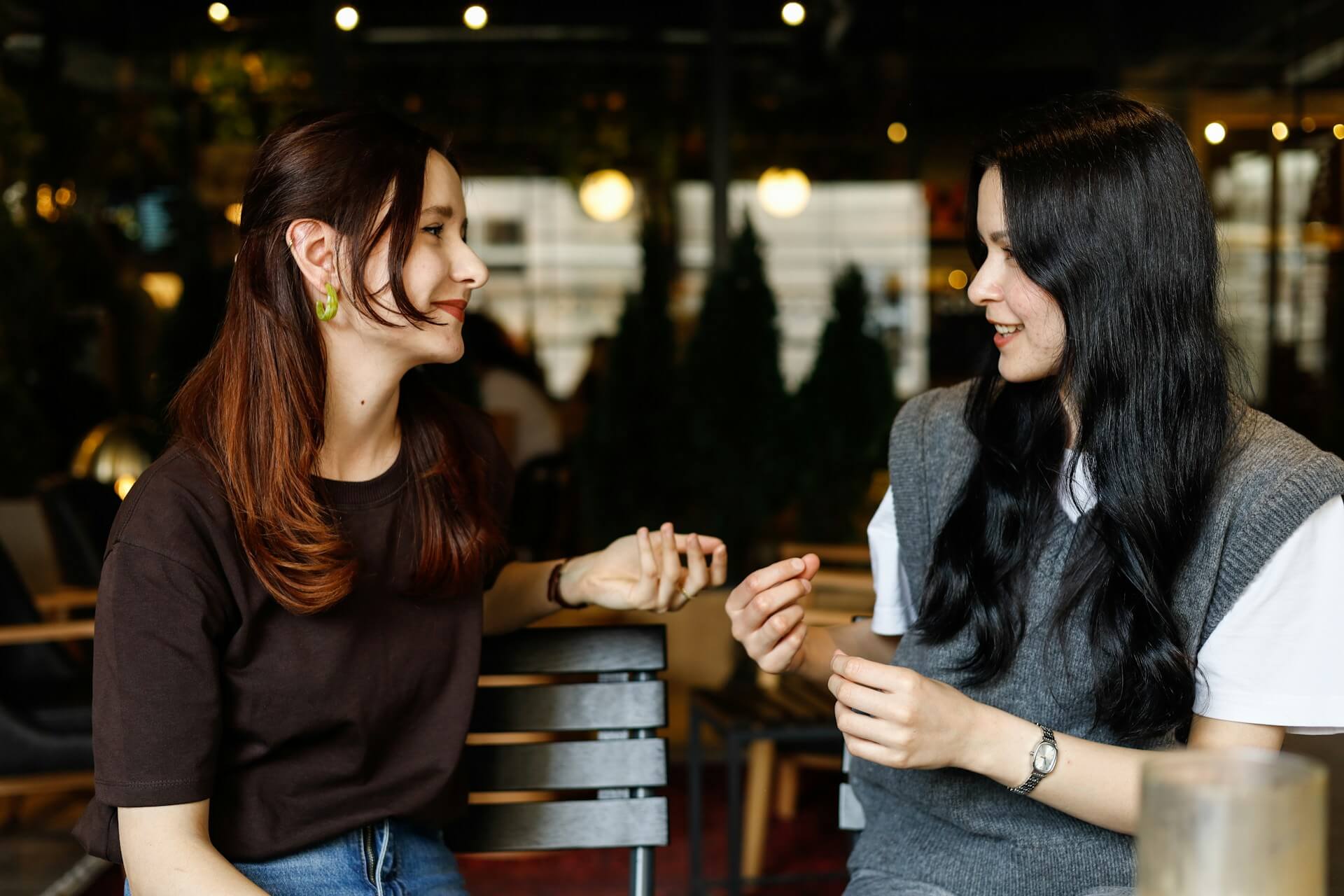Mark Manson (@iammarkmanson) is the author of Models: Attract Women Through Honesty, and he blogs to an audience of millions about psychology and personal development.
The Cheat Sheet:
- Love is not enough; people prioritize love over other more important values, such as self-respect, trust, and boundaries.
- The relationship scorecard is Toxic Habit 1, where people feel as though they are always “owed” things by their partner.
- Boundaries Basics: taking responsibility for your own thoughts/emotions and expecting your partner to take responsibility for theirs.
- World travel is both empowering and limiting; you gain new perspective, but it limits your ability to form commitments.
- Realizing that everything you do doesn’t matter is a good thing, because it means you no longer have any excuses not to be who you wish to be.
- And so much more…
[aoc-subscribe]
If you ask Mark Manson why we should listen to what he has to say about psychology and personal development, he might jokingly answer: “You shouldn’t.” He has no formal credentials, but two million people read his site each month and his work has been republished in The Huffington Post, TIME Magazine, Quartz, Business Insider, Vox, and others. He’s been asked to speak at a couple of universities and will be speaking to people at the Union Nations later this month.
In this episode of The Art of Charm, Mark talks to us about love, friendship, boundaries, relationships, commitments, and even world travel. Sure, it sounds like we’re going all over the place, but it’ll make sense when you give it a listen. Enjoy!
More About This Show
Mark Manson’s sordid past ties in with ours at The Art of Charm because, like us, he was immersed in the PUA (pick-up artist) community for some time — and we broke away years ago for similar reasons. Similarly, we’ve both gone through rebranding after “seeing the light” and striving to understand more about human interaction than the canned lines and manipulation games typical to the PUA genre.
“A big change for me in my career,” says Mark, “was coming to the realization that I can still sell my work and make money without having to push it on people — without having to write my marketing a certain way or without having to promise, ‘These three lines will get any girl to call you back.’ There’s a whole population of people out there who don’t respond to that kind of cheesy, forceful, manipulative communication style.”
“It’s ironic that that was a huge realization for me in my personal life with my relationships. I don’t have to communicate this way with women. I don’t have to communicate this way in my relationships — in fact, if I don’t, what I’ll do is I’ll screen the right people into my life. Applying that to my business, it was the same thing. If I stop communicating this way, then people who will read me and support me will actually be the cool, honest, open people who are there for a legitimate reason.”
Love is Not Enough
Now, Mark’s got a book under his belt — Models: Attract Women Through Honesty — and is prolific enough in his blogging to have gained an impressive following of over two million readers per month. One of our favorite pieces he’s written is called Love is Not Enough, and it’s about the way people look at love and relationships as sort of a tool or a problem solution that “conquers all.” Most of us should know better, but our culture tends to nurture this erroneous mindset as a noble cure-all when the truth is that putting all your trust in love can be destructive.
“Love is Not Enough was actually inspired by a friend of mine down here in Brazil,” says Mark. “Basically, her boyfriend was a deadbeat. He was a loser, and treated her really poorly, and she was still in love with him. And for years, all of her friends, we were constantly telling her, nudging her, “Hey, get rid of this guy!” And she never would. Her justification was always just that, “Well, I love him.” So I finally got frustrated one day and [needed] to write about this.
“I could look back in my life and I could see a few relationships myself where I put up with a lot of things that were very bad for me and very unhealthy for me just because I had strong feelings. And one thing I believe strongly and that pops up in my work a lot is that feelings are signposts. They’re feedback mechanisms. They’re not laws. Just because you feel something doesn’t mean it’s right. It doesn’t mean that it’s an obligation.”
To Mark, it’s far more important to work on trust, respect, and basic communication habits in a relationship than in having faith that love and the concept of happily ever after will make everything pan out. But love doesn’t magically bestow compatibility between people, no matter how hard we may wish for it.
“You can feel really, really strongly about somebody who’s bad for you, and that’s just a fact of human nature,” says Mark.
“One thing about human nature in general is that we are constantly biased by our emotions,” he continues. “None of us are very rational creatures — or at least we struggle to be rational. It’s something that we have to consciously work towards. And science has shown again and again that people generally, when faced with important decisions, they tend to take whatever they feel and then make up explanations to justify that feeling. And it takes a lot of self awareness and practice and effort to start to overcome that tendency.”
“Like anything else, some people are just naturally better at it than others. Some people have more practice at it than others. But I think getting swept away and being in love with somebody and just assuming that the emotion, by itself, has this gravity or this meaning — it’s not necessarily there. It’s not necessarily true.”
Trust Yourself Less
One way to overcome a tendency toward being swept away by love and other heavy emotions is to, as Mark says, trust yourself less. Get in the habit of examining initial thoughts and feelings about relationships or major life decisions with a skeptical eye. Ask yourself important questions like, “Is this person really an amazing partner, or am I just desperate enough to look past their shortcomings?”
It’s uncomfortable. It forces us to think about things that are unpleasant. But it’s a skill that can be practiced and developed for long-haul health and a happier lifestyle. It may sound like the opposite of confidence, but it’s anything but.
“I like to think of confidence as simply being comfortable with failure,” Mark says. “I think the two kind of go together well. Social confidence is essentially being comfortable with the idea that some people aren’t going to like you and some people are going to disagree with you. I think that actually goes along pretty well with not trusting yourself, because to be comfortable with other people potentially not liking you or agreeing with you, you have to be comfortable with the idea that you’re wrong and that what you’re saying is actually stupid!”
You’re not right about everything and you’re not great at everything because you don’t know everything. If you’re truly confident, you should be comfortable with the potential for being wrong without it affecting your identity.
Resisting Ultimatums and Embracing Flaws
Another trap that relationships fall into is when partners demand major sacrifices of some sort from each other. Not only does this compromise the person making the sacrifice, but it practically turns them into someone unrecognizable — that is, they’re no longer the person they were at the beginning of the relationship.
“Say my fiance demands I give up writing,” says Mark. “Well, that changes me as a person. It makes me a more miserable partner. It makes me a worse partner for her. I’m unable to give her the things that I used to give her and be the man that I used to be. And so suddenly, she wakes up one day and she’s with a guy that isn’t the same guy that she met — it’s a broken version of the man that she met.”
Ideally, partners grow and change together in a relationship rather than trying to point out things in each other that they feel should be changed. Setting healthy boundaries early in the relationship is one way to see if each partner is into it for the long haul, and if they really are compatible.
“I think to love somebody, you need to love their flaws in a sense,” says Mark. “All the good things about people, there’s usually some sort of negative side effects that show up if you spend enough time with them. The best thing about people is also usually one of the worst things about people. So if you’re going to love somebody and be with them for a long time, you have to find flaws that you’re willing to appreciate and respect.”
Relationship Scorecard
Another misstep in relationships is when partners keep a relationship scorecard — that is, they’re constantly tallying up the things they do for the sake of the relationship against what they perceive the other partner is doing, which creates a sense of imbalance. Resentment ensues when one partner feels as if they’re owed something from the other as a result of this imbalance.
“[There’s sometimes a sense that] everything each partner in the relationship does for each other needs to be proportional and equal, and that’s just completely unrealistic — for a few reasons,” says Mark. “One, it’s just that things change over time. Some people, their lives get busy and their partner’s life isn’t as busy. Some people go through weeks where they’re not feeling very good or they’re sick or their aunt died or whatever. There’s just a natural variance to life and it’s unfair to constantly have this expectation that everything you do for your partner should be reciprocated in some sense.”
“The other reason it doesn’t work is that usually, again, one of the things that makes relationships work really well is that the other person adds value to your life in a way that you’re not very aware of or very good at yourself.”
“If everything you do for your boyfriend or girlfriend or spouse is done on the pretense of getting something in return — of deserving something in return — you’re not really in a romantic relationship anymore. You’re in a business transaction!”
Listen to this episode of The Art of Charm in its entirety to learn more about The Friendship Test (ask yourself, “If my best friend was behaving this way towards me, would I tolerate it?”), establishing and acknowledging the need for personal boundaries in a relationship by taking a boundary inventory, taking responsibility for your own thoughts and emotions while expecting your partner to do the same for themselves, and why retaining the power to say “no” is important for both partners during a relationship.
THANKS, MARK MANSON!
Resources from this episode:
You’ll also like:
- The Art of Charm Challenge (click here or text 38470 in the US)
- The Art of Charm Bootcamps
- Best of The Art of Charm Podcast
- The Art of Charm Toolbox
- The Art of Charm Toolbox for Women
On your phone? Click here to write us a well-deserved iTunes review and help us outrank the riffraff!




